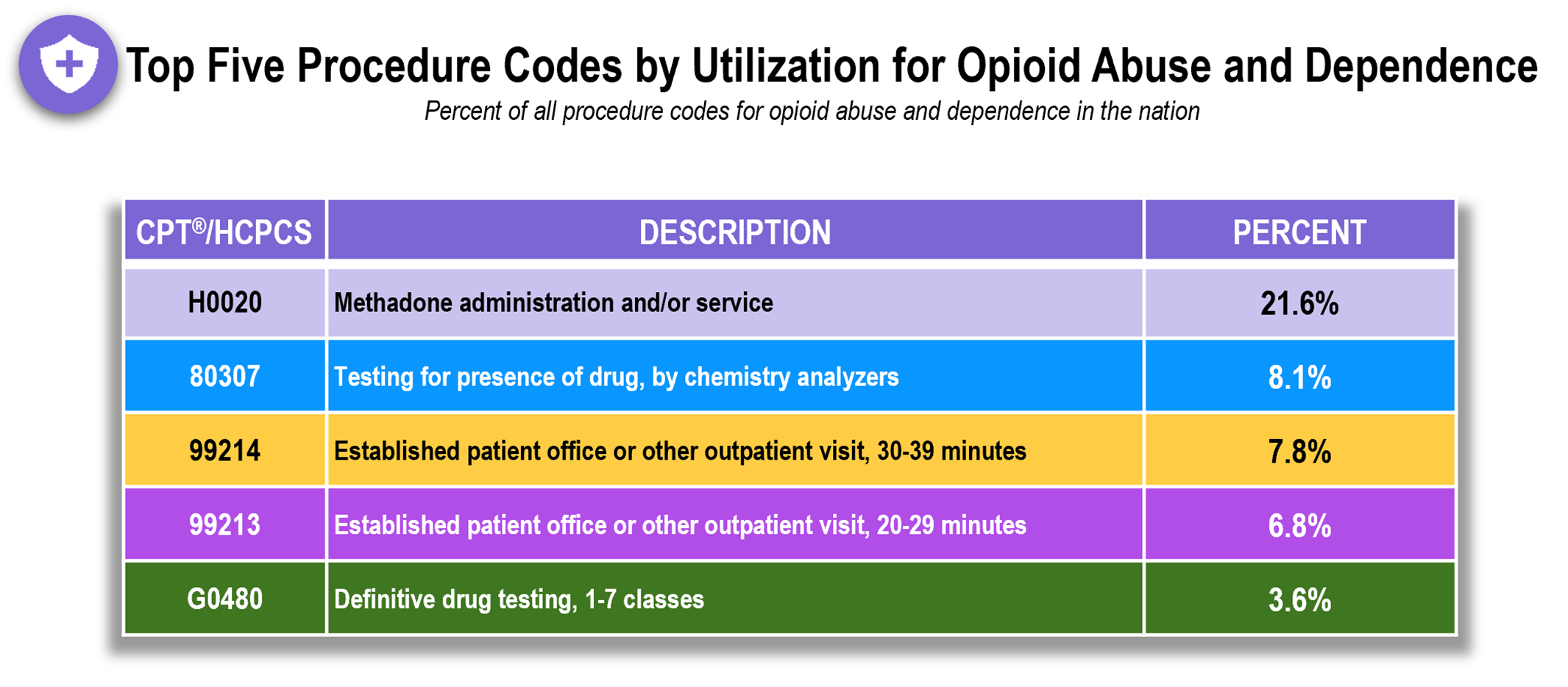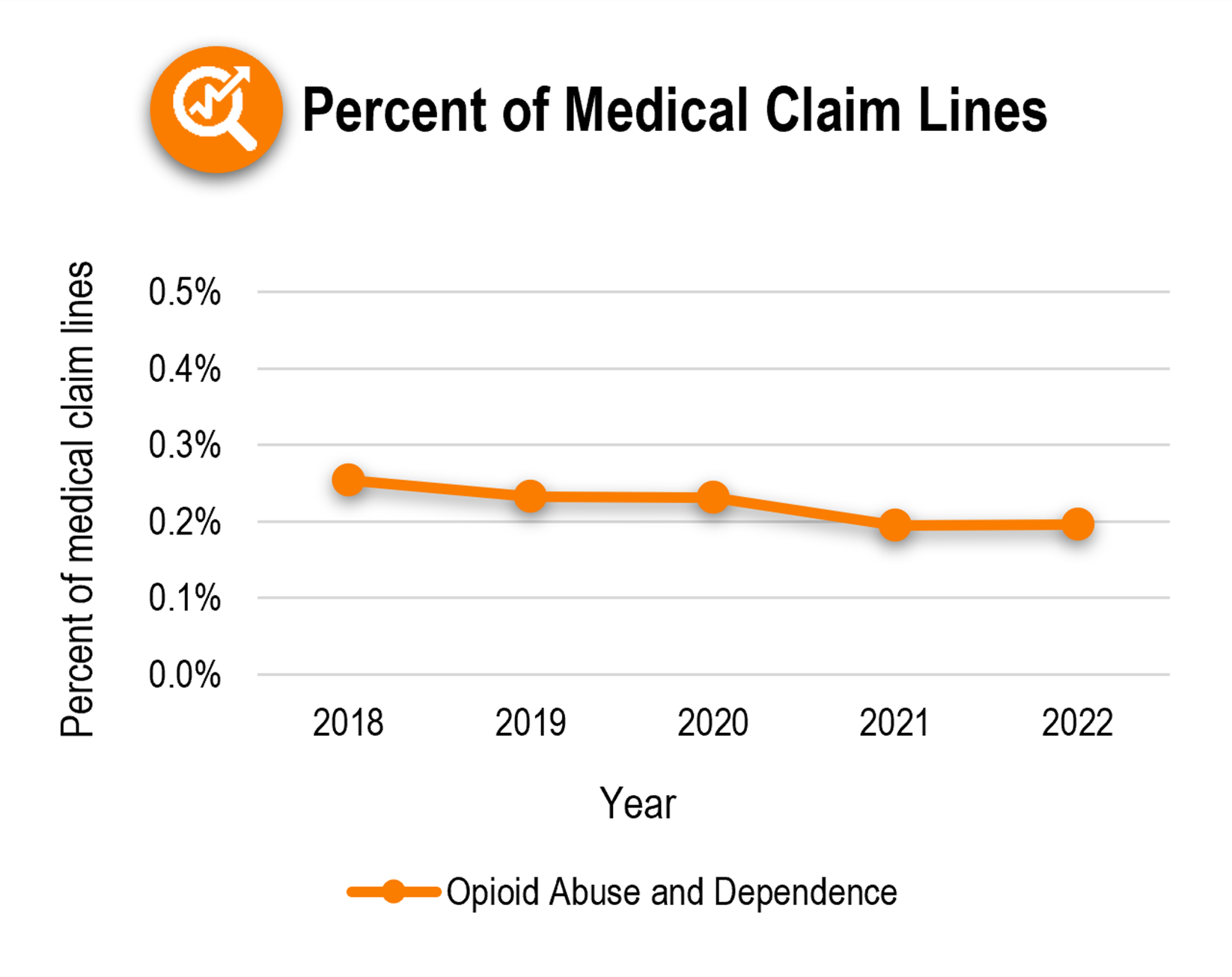- Center on Health Equity & Access
- Clinical
- Health Care Cost
- Health Care Delivery
- Insurance
- Policy
- Technology
- Value-Based Care
Contributor: Opioid Tracker Released by FAIR Health
FAIR Health has launched a new Opioid Tracker, featuring heat maps representing opioid abuse and dependence claim lines in the United States.
Today FAIR Health launched the Opioid Tracker, a free, interactive tool tracking opioid abuse and dependence state by state. A brief released simultaneously offers a user’s guide to the Opioid Tracker.
Available on FAIR Health’s website fairhealth.org, the Opioid Tracker includes a heat map representing opioid abuse and dependence claim lines as a percentage of all medical claim lines in 2022 state by state. Clicking on a state displays an infographic for that state. The infographic includes the top 5 procedure codes by utilization for opioid abuse and dependence, the top 5 procedure codes by aggregate allowed amounts for opioid abuse and dependence, the change in opioid abuse and dependence claim lines as a percentage of all medical claim lines from 2018 to 2022, and diagnoses of opioid abuse and dependence by age and gender. There is also a similar infographic for the nation as a whole. The source of the data is FAIR Health’s repository of more than 42 billion private health care claim records, the largest such repository in the nation.
Among the key findings revealed by the Opioid Tracker:
- In 2022, H0020 (methadone administration and/or service) had the highest utilization nationally of all procedure codes for opioid abuse and dependence, representing 21.6% of claim lines for all such procedure codes (Figure 1).
Figure 1. Top 5 Procedure Codes By Utilization For Opioid Abuse and Dependence, National, 2022. Credit: FAIR Health

- Ranking in first place by total spending nationally for opioid abuse and dependence, H0018 (behavioral health short-term residential treatment program, no room and board, per diem) accounted for 9.8% of aggregate allowed amounts attributable to procedure codes for opioid abuse and dependence in 2022.
- Nationally, the percentage of medical claim lines for opioid abuse and dependence from 2018 to 2022 showed an overall decline, from 0.254% in 2018 to 0.196% in 2022 (Figure 2). However, a number of states showed an increase in that percentage—including Arizona, Georgia, Indiana, and Rhode Island, among others.
Figure 2. Opioid Abuse and Dependence Claim Lines as Percent of Medical Claim Lines, National, 2018-2022. Credit: FAIR Health

- Nationally, in 2022, patients aged 31 to 40 were the age group with the highest percentage of opioid abuse and dependence claim lines, 31.1%.
- Nationally, in 2022, males accounted for 62.5% of claim lines with opioid abuse and dependence diagnoses, while females accounted for 37.5%.
The Opioid Tracker is the latest addition to FAIR Health’s series of trackers offering geographic windows into health care data. The series also includes the Monthly Telehealth Regional Tracker, which tracks telehealth utilization by region across the nation; and the Cost of Giving Birth Tracker, which shows state-specific and national median costs for vaginal deliveries and C-sections.
The Opioid Tracker sheds light on multiple aspects of opioid abuse and dependence, including utilization, costs, age and gender. We hope that the Opioid Tracker will be useful to all health care stakeholders, such as policy makers, payors, providers, patients, and researchers, as they continue to track and seek to better understand and address this public health issue.
For the Opioid Tracker, click here. For the user’s guide to the Opioid Tracker, click here.
Insights Into Patient Portal Engagement Leveraging Observational Electronic Health Data
January 12th 2026This analysis of more than 250,000 adults at least 50 years old with chronic conditions showed lower portal use among older, non–English-speaking, and Black patients, underscoring digital health equity gaps.
Read More
